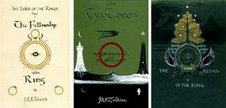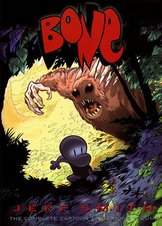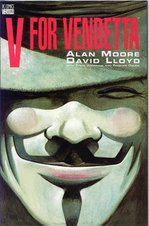I have already expressed my dissent to some of the opinions in this article pertaining to video games. But the authors also attack the film medium and the sci-fi and fantasy genres. This heresy must be dealt with. First, film. Zengotita writes, "I worry that games have the same effect on the imagination that movies have." Her argument is that the book version of a story is always better than the movie. With most film adaptations, I agree. However, what about original movies? "Crouching Tiger, Hidden Dragon," for example, is an excellent commentary on the Kong-fu genre. "The Matrix" is very fitting for discussing deconstructionism (the sequels are terrible). Furthermore, if movies are so detrimental to the imagination, how is it that I continue to analyze and re-interpret the original Star Wars Trilogy? Because I'm an uber-geek. But it's also because, like a good novel, a good film tells a story that leaves room for imagination.
Second, Kostor claims the sci-fi and fantasy genre's are plot driven and formulaic. According to Avrich, genre fiction (which only seems to include sci-fi and fantasy) is not very good at developing characters. At this point, their "debate" seems more like an unfounded rant about anything the authors can connect to video games. Have they forgotten that all literature falls into some sort of genre? Have they forgotten that Victorian literature is notoriously plot-driven? If the genre's of sci-fi and fantasy are so limited in terms of character, what do they think about Douglas Adam's work? Phillip Dick? Mary Schelly?
matt
Sunday, September 10, 2006
Subscribe to:
Comments (Atom)


The Giants will go as far as Eli takes them.




